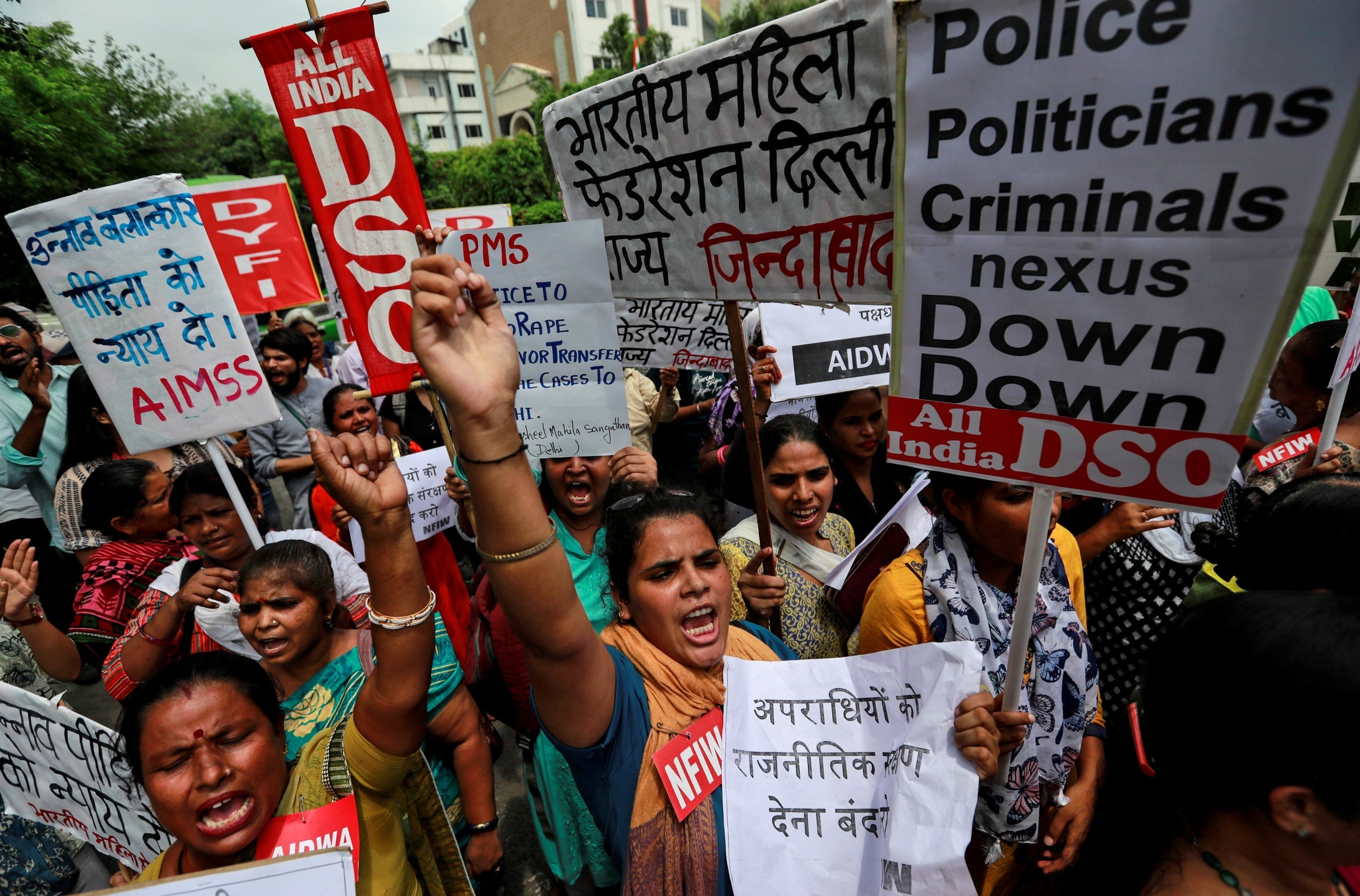Rape victims still being subjected to degrading two-finger tests despite India’s ban
Human Rights Watch has described the test as ‘invasive, humiliating, and inhumane’, writes Meehika Barua

India may have banned two-finger virginity test, but three years on doctors are still subjecting rape victims to the humiliating and invasive procedure instead of using the government’s rape tests kits, re-traumatising already vulnerable women.
Yashvi*, 23, says she has been trying for over eight months to get justice after she was raped by her colleague in Bhopal, India.
Despite identifying her attacker, he has still not been arrested, as police have been relying solely on witness testimonies and, crucially, the discredited two-finger test.
“If rape kits were available my case wouldn’t have taken this long. I am trying hard [to get justice] because I don’t want other women to go through this”, she says.
The test, described by Human Rights Watch as “invasive, humiliating, and inhumane”, involves inserting two fingers into the vagina for doctors to then assess its laxity before making a conclusion on whether the woman has had sex. The inefficient test was banned by India in 2016, but appears to still be used.
In June 2018, Maneka Gandhi, India’s Women and Child Development Minister, announced that SAFE kits (Sexual Assault Forensic Evidence) would be distributed to all hospitals across India. In cases of rape allegations, kits can carry out immediate medical investigation and collect forensic evidence. Each kit has a set of swabs, test tubes, chemicals for preservation and bottles to secure hair, urine, saliva samples, without which rape cases fall apart.
“Where I am from it is not unusual for men to think they can get away with rape because they know that the two-finger test records no evidence”, says Ishani*, who was raped by her uncle for five months until she was able to escape and report the incident. She went to get herself tested at Dewas Government Hospital in Madhya Pradesh in June 2019 – but doctors still used the two-finger test.
One of the problems is that the government is currently only supplying kits to a selected number of hospitals, with many not having access. Supply depends on national and state level budgets, said Dr Ulhas Gonnade, head of forensic medicine at Government Medical College Raipur, and so only hospitals with highly sophisticated labs are given priority.
In Madhya Pradesh, the state with highest number of rape cases according to National Crime Records Bureau (NCRB), the kits are not available.
“Everyone is only aware of the two-finger test here, they don’t know it is a malpractice” said Amu Vinzuda, programme coordinator for Jansahas, a charity which supports women who are victims of violence.
But Ravi Kant, an advocate at the Supreme Court of India who has worked with survivors for more than 20 years fighting assault cases, said police in rural areas often don’t have the kits ready.
“It requires investment and specialised training, police have no idea how these kits work and sometimes simply ask victims to procure them,” he said.
“This is not how rape should be responded to, our law enforcement has never been trained for assault against women,” added Kant.
“The crime is against the state, they need to support victims.”
There is also a lack of protocol in dealing with rape cases in police departments, with only Goa and Delhi police having a set of standard guidelines. Little to no trust in police and low conviction rates are seen as the main factors that prevent women from reporting assaults.
According to one national survey, 99 per cent of cases involving sexual assault go unreported in India. For Ishani, police were reluctant to lodge a complaint because her assaulter was an influential government employee – they even suggested that Yashvi marry her rapist.
“Their aim is to get as few rape cases on record as possible, and so their first attempt is to scare victims,” said Manju Chouhan, a social worker at JanSahas.
Inspector Sunil Yadav, from Dewas district police station in Madhya Pradesh, denied all claims regarding police being uncooperative.
“This is untrue, it doesn’t happen in my station”, he said.
Hospital staff are also often unsupportive, and it is becomes an extremely harrowing experience for victims, explained Ms Chouhan.
Yashvi recounted how her nurse rebuked her during her examination: “Because of your sexual pleasures, our time is constantly wasted.”
She said she was traumatised by the medical staff at Jabalpur Government Hospital, with the doctor telling her how he was “fed up” of going to the court constantly to give testimonies.
*The names of the women have been changed
Subscribe to Independent Premium to bookmark this article
Want to bookmark your favourite articles and stories to read or reference later? Start your Independent Premium subscription today.

Join our commenting forum
Join thought-provoking conversations, follow other Independent readers and see their replies